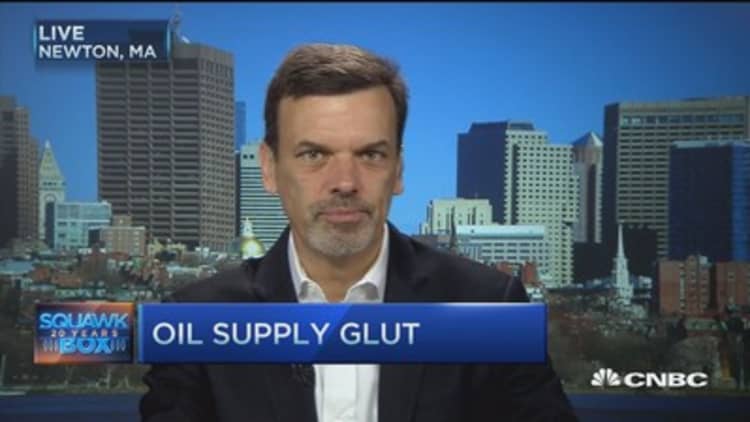U.S. crude futures settled slightly lower on Friday after a Reuters survey found on Monday OPEC oil output rose in November from the previous month, led by a rebound in Iraqi exports after bad weather had temporarily halted supply growth from the group's second-largest producer.
The increase indicates the Organization of the Petroleum Exporting Countries is again pumping close to a record high as Saudi Arabia and other big producers focus on market share.
OPEC supply has risen in November to 31.77 million barrels per day (bpd) from 31.64 million in October, according to the survey, based on shipping data and information from sources at oil companies, OPEC and consultants.
Oil prices had risen more than 1 percent on Monday as speculators took bullish bets on the odd likelihood of a surprise outcome at this week's OPEC meeting and as refined oil products rallied.
Few traders and investors expect any material change to OPEC's production policy when the Organization of the Petroleum Exporting Countries convenes in Vienna on Friday. Still, some were hedging for the possibility of a surprise.

Crude had also gotten support from U.S. gasoline and ultralow sulfur diesel (ULSD) futures, which rallied as the front-month contracts in both headed for expiry. But those futures also turned negative in the afternoon.
Brent crude, the global oil benchmark, was down 29 cents at $44.57 a barrel at 2:34 p.m. EDT. U.S. crude closed 6 cents lower, or 0.1 percent, at $41.65 a barrel, having earlier risen to $42.61.
With Monday being the last session for November, Brent and WTI were likely to end the month some 9 or 10 percent lower as a global supply glut shows little signs of diminishing.
Iran, once the second-largest OPEC producer after Saudi Arabia, hopes to raise crude exports by as much as 1 million barrels per day within months of having sanctions against its nuclear program lifted.
Analysts reduced their 2016 price expectations for Brent crude further this month, saying in a Reuters poll they saw the benchmark at an average price of $57.95 a barrel, down 57 cents from the previous month's poll.
OPEC is determined to keep pumping oil vigorously despite the resulting financial strain even on the policy's chief architect, Saudi Arabia, alarming weaker members who fear prices may slump further towards $20.
Any policy U-turn would be possible only if large producers outside the exporters' group, like Russia, were to join coordinated output cuts. But Russia's Energy Ministry said on Monday it will not attend this week's meeting, but expects an experts-level discussion with OPEC in mid-December.
Russia is, meanwhile, drilling for more oil, according to data suggesting the No. 1 producer ready for a long fight for market share with OPEC.
The end of the U.S. Thanksgiving holiday period will also mean a return to the market of U.S.-based investors, a factor that will likely increase trading volatility later on Monday, Global Risk Management's Poulsen said.
Traders will also be watching for the U.S. non-farm payrolls report due on Friday. A strong jobs report could seal the case for an interest rate hike at the U.S. Federal Reserve's Dec. 15-16 meeting and give an indication of the health of the economy.
Other events this week include the European Central Bank meeting on Thursday where economists polled by Reuters expect the ECB to announce monetary policy easing measures.



